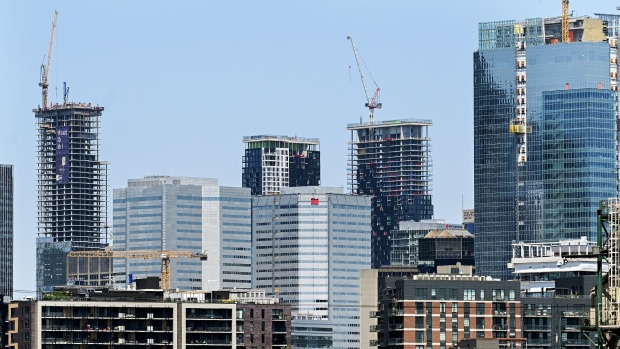Apr 16, 2024
Post Offices, Armories Enlisted to Ease Canada Housing Crunch
, Bloomberg News

(Bloomberg) -- Canadian Finance Minister Chrystia Freeland’s budget unveiled more details about a plan to turn the federal government, which is the country’s largest landowner, into a provider of low-cost leases for builders and developers.
The government wants to see a new generation of Canadian homes added on federal lands, post office lots and national defense properties. It’s part of Prime Minister Justin Trudeau’s goal to add 3.87 million new homes by 2031, essentially more than doubling the pace of average annual housing starts.
The government will also begin consultations on introducing a new tax on residentially zoned vacant land to incentivize construction. As well, it’s proposing C$1.1 billion ($795 million) over 10 years to reduce the public service’s office portfolio by 50%, and where applicable, prioritize student and non-market housing on those properties.
“The best way to make home prices more affordable is to increase supply — and quickly,” Freeland said in a statement accompanying Tuesday’s budget. “Our renewed focus today is unlocking the door to the middle-class for millions of younger Canadians.”
Angst about rapidly worsening affordability, especially among Generation Z and millennials, prompted Trudeau’s government to make housing a centerpiece of the budget. Many of the measures, including the broad strokes of the plan to build homes on public lands, have been announced in recent weeks.
Read More: Builders to Get Cheap Land in ‘Ambitious’ Canada Housing Push
The budget reveals that five federal properties will be leased to housing providers immediately to build more than 800 homes in cities including Ottawa, Montreal and Toronto. Six out of some 1,700 Canada Post Corp. properties are being assessed for housing development potential, and the government says “many more” lands owned by the postal service may be unlocked for housing.
The Department of National Defense — which owns 622 properties totaling 2.2 million hectares or the size of New Jersey — plans to divest 14 surplus properties where housing could be built, such as armories in Amherst, Nova Scotia and Vernon, British Columbia. It’s exploring redeveloping properties in Halifax, Toronto and Victoria that may be suitable for both military and civilian uses.
The homebuilding push comes just weeks after the government said it would set limits to the population of temporary workers, foreign students and asylum seekers for the first time, in part to relieve pressures on the housing market.
©2024 Bloomberg L.P.







